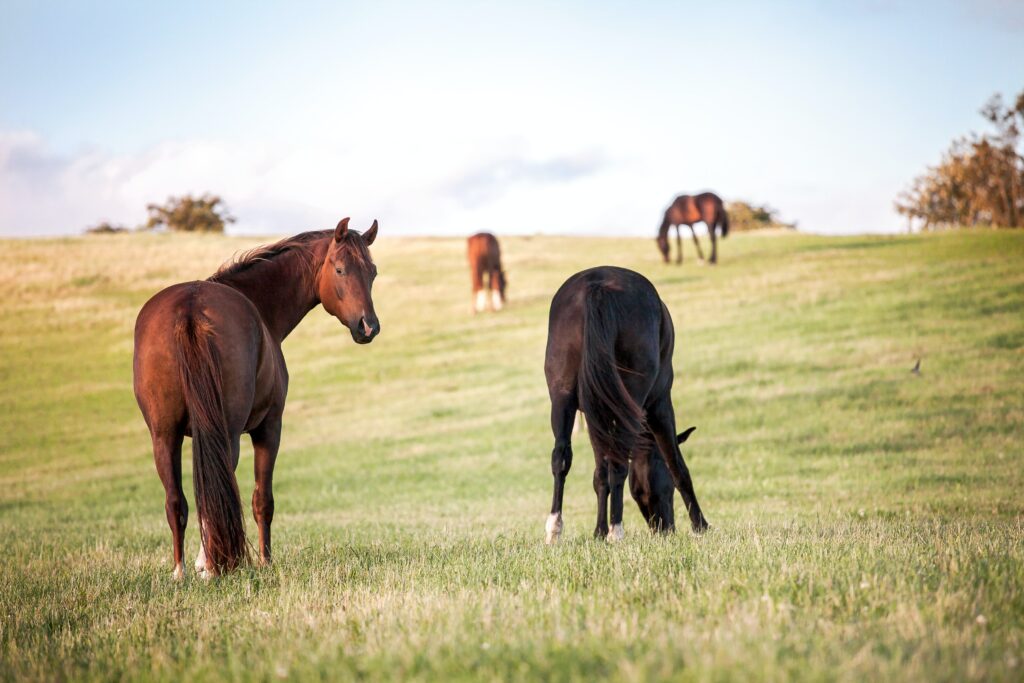Prepare for summer grazing
– What does the vet say?
Authorised veterinarian Moa Gustavsson gives her top 10 tips for summer grazing!
1. Prepare the horse gradually
It is important to give your horse a few days of short-term summer grazing in the middle of the day to gradually get used to grass. Horses moving from a gravel paddock with no access to grass can be hand grazed first and then released onto a grass field. Be aware that horses can eat large amounts of grass in a short time. Be careful with horses that have had laminitis due to obesity and grass, sensitive horses should not be grazed. Consult your veterinarian if your horse has had laminitis, it can vary widely from horse to horse what they can handle.
2. Parasites
Take faecal samples in good time, at least two weeks before grazing. The sample should preferably be taken in April-May and also culture for large bloodworms. Deworm if necessary and follow up during grazing if needed. Foals and young horses follow the recommended programme. Consult your vet for guidance on faecal samples and deworming.
3. Poisonous plants
Go over the summer pasture and remove poisonous plants. You can search for good information on websites about which plants are poisonous. If necessary, fence off areas with poisonous plants if it is not possible to remove them.
4. Fences
Walk over the fence regularly during grazing. Fence damage is a common reason for veterinary care during the summer and you don’t want to risk horses escaping.
5. Water
Fresh water is important. Horses drink a lot of water, so it’s best to use larger barrels or tubs of water rather than water cups. If you have water cups, it is very important to check that the flow is sufficient in them. Clean when necessary as it is easy for algae to grow.
6. Salt
It is important that the horse receives a salt supplement or a salt block during the summer. On really hot days, especially if the horse is ridden and sweats a lot, salt blocks is rarely sufficient to meet the need for salt and supplementing the feed with salt may be necessary.
7. Hard feed or not?
Look at the individual, many horses do well on pasture without hard feed. If the horse is not to be trained and seems to keep the weight well, hard feed may not be necessary. To be absolutely sure that the horse is getting what it needs, the same applies to grazing as to other roughage feedings during the year; analyse the roughage and base it on that. The most common approach for most horse owners is to assume that the pasture provides sufficient nutrition and to support with hard feed if necessary based on the amount of activity. Mares with foals on the side may need extra nutrition in addition to the pasture.
8. Insects
If necessary, protect your horse from flies and ticks. Insect repellent, fly hood, blanket – see what works best for your horse.
9. Sun
Some horses are sensitive to the sun, protect them with sun cream, hoods with nose nets and possibly blankets.
10. Daily inspection
Don’t forget the daily inspection of the horses, as wounds are common during the summer.








